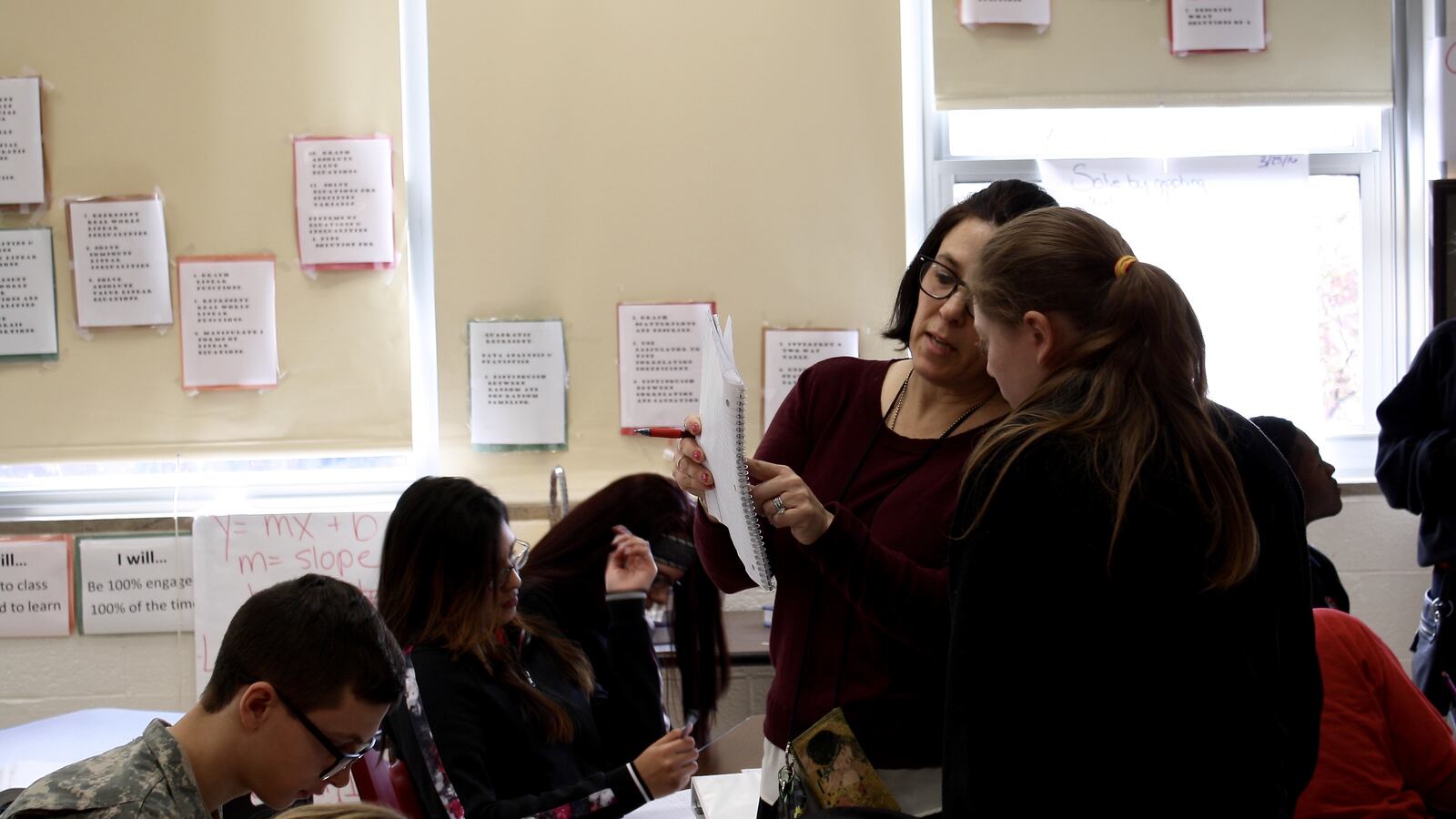The wheels are in motion in Indiana to create a new state exam that will replace the problem-plagued ISTEP after 2017.
Last week, state lawmakers and policymakers made their final appointments to a new committee that will explore testing options for Indiana and make recommendations to the legislature by Dec. 1. The committee — whose members are listed here — will meet throughout the summer and fall to consider everything from what skills the exams should test to how often they should be given.
But first, teachers have a few requests.
Chalkbeat spoke with several teachers in Indianapolis about what they want state officials to keep in mind as they get ready to research new test options. The new exam will represent the third major testing change for Indiana students since the state left Common Core and its associated exam in 2014.
Learn more: RSVP to “A Conversation About Education: The end of ISTEP.”
Here’s what teachers say they want from the new exam:
1. ENOUGH TIME TO PREPARE
When tests change frequently, teachers and students are often left to deal with the fallout. Teachers say they need more time not just to prepare their students for what might change, but to also prepare themselves.
Beth Shaffer-Scott, a veteran Indianapolis Public Schools teacher at School 70: “There’s not enough information or prep when they switch models. I feel like we’ve got the kids to about where the bar is, and … you think you’re going to be OK, and then all of a sudden the state comes in and raises the bar.”
Megan Parker, a third- and fourth-grade special education teacher at Tindley Renaissance Academy:
“I want to know as much before hand so I can prepare my students for it. Change is going to happen — there’s nothing we can do about it. We may not have control over things that are happening, but we do have control of our reaction to it. I tell that to my students.”
2. FEEDBACK THAT’S USEFUL FOR TEACHERS
Many educators say that state test results that come late and consist of a pass/fail score don’t tell them anything they don’t already know.
Shaffer-Scott: “The only data I get back from state testing is (that a student is) ‘at-risk’ for failing ISTEP, but it’s like OK, then what? It needs to be a little more prescriptive.”
“We need to get meaningful testing — and meaningful to kids, not testing to evaluate schools, not testing to evaluate teachers — but testing needs to evaluate children, and it needs to be a useful tool, and I don’t think it is that anymore.”
Robin Clark, a math teacher at Indianapolis’ Emmerich Manual High School: “I don’t need their test to tell me how my kids are doing. I can give my own tests, I can be cognizant on a daily basis, and I can tell you who knows what. I feel like most teacher feel that way.”
Jane DeVoe, a longtime teacher who now volunteers at IPS School 43: “We have got to be committed to getting those test results back and using a vendor and an administrator that, No. 1, can provide the service for the millions of dollars that we have paid.”
“(ISTEP) was never meant to punish children, it was never meant to punish teachers, it was never meant to punish schools. Now we’ve become this high-stakes testing place, and when you look at what’s happened last year when teachers hardly have the data — what’s the point?”
3. LESS TIME DEVOTED TO TESTING
Teachers said the tests are too long and emotionally draining for kids, and they’re usually complicated by computers that make kids even more nervous because they don’t necessarily get much computer time outside of testing days.
Parker: “It’s a lot, and it takes its toll on students to be testing all the time. They just shut down. I had a few students who just put their heads down.”
“My prayer for Indiana is that we get shorter tests that are more effective at measuring student growth and student progress because I would really like to do more of my job than spending a lot of time testing. I love to teach, but I’m not a teacher, I’m a test administrator, I’m a proctor. It just really stinks for us and for the kids when we can’t do what we’re good at.”
4. A VOICE FOR TEACHERS
Teachers said they want a say in what happens because they know their students best.
Clark: “It’s troubling that more people don’t come to us and ask about some of these questions. I would like input, or I would like some of my colleagues to have input.”
Shaffer-Scott: “They just need to look at what they’re measuring. Is it measuring what it’s supposed to measure? Is it valid and is it reliable? Are there educators actually helping to write to this test?”
Teachers, what would you add to this list? Feel free to share with us in the comments below or send our community editor, Shaina Cavazos, an email at scavazos@chalkbeat.org.

